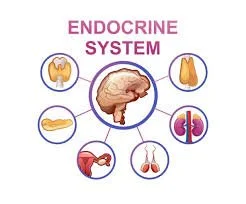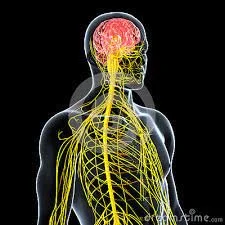
The Importance of Digestion
As active adults, we all know that maintaining a healthy diet is important for our performance and recovery. But have you ever stopped to consider just how important good digestion is for our body's health and function? Digestion is the process by which the body breaks down food into smaller particles that can be absorbed and used for different functions of the body such as growth, repair, and energy production. It’s not so much about what you eat, but what your body can absorb. The truth is, digestion affects not only our gastrointestinal system but also other vital systems in the body, including the endocrine system, immune system, cardiovascular system, detoxification, and nervous system. Poor digestion can lead to a range of issues, including nutrient deficiencies, digestive discomfort, inflammation, and more. This is why it is essential to prioritize digestive health through a healthy diet, regular exercise, and other lifestyle habits that support digestion.
Digestion and the Endocrine System
The endocrine system is made up of different glands and organs that produce and secrete hormones, which are chemical messengers that are transported through the blood to stimulate specific cells or tissues into action. These hormones help to regulate a wide range of bodily functions, including metabolism, circadian rhythm, growth and development, and reproductive health, and mood. Poor digestion can negatively affect the endocrine system by disrupting the production and regulation of these very important hormones.
Nutrient Malabsorption: If the small intestine is not properly digesting and absorbing nutrients into the bloodstream, it can lead to nutrient deficiencies, which can disrupt hormone production and regulation. Certain vitamins and minerals are necessary for the synthesis and activation of hormones.
Gut Dysbiosis: Poor digestion can also disrupt the balance of gut bacteria, which play an important role in regulating the endocrine system. The gut microbiota, which are the microorganisms that live in the digestive tract, can produce and metabolize hormones, including estrogen, testosterone, and thyroid hormones. Gut microbiota is not only involved in metabolic disorders, but also participates in the regulation of reproductive hormonal function (Hussain et al., 2021). When the balance of gut bacteria is disrupted, the population of beneficial bacteria can be reduced, allowing harmful bacteria to thrive. This can lead to a condition known as dysbiosis, which can have negative effects on the body, including inflammation, impaired immune function, and poor nutrient absorption.
Inflammation: Inflammation in the gut can trigger the release of cytokines, which can activate the body's stress response system, leading to the production of cortisol, a stress hormone. Chronic inflammation can lead to elevated cortisol levels, contributing to the development of adrenal fatigue and hormonal imbalances.
Two-Way Street: Digestion does not only affect the endocrine system, but the endocrine system also affects digestion, it’s a two-way street. Many of the hormones produced by the endocrine glands are also involved in regulating digestion and nutrient absorption. For example, the pancreas produces insulin, which is involved in regulating blood sugar levels, shuttling glucose from the blood into the body’s cells for storage. The small intestine produces hormones that help to stimulate digestive enzymes and promote nutrient absorption such as Cholecystokinin (CCK), Secretin, and Gastrin. CCK stimulates the release of bile from the gallbladder and pancreatic enzymes from the pancreas, which are involved in breaking down fats and proteins. Secretin stimulates the release of bicarbonate from the pancreas, which helps to neutralize stomach acid as it enters the small intestine. Gastrin is an important hormone that helps to regulate the digestive process and ensure that nutrients are properly broken down and absorbed by the body.
When digestion is impaired, it can have a significant impact on the endocrine system by disrupting hormone production and regulation. Support healthy digestion through a balanced diet, proper hydration, and lifestyle factors such as exercise and stress management to promote optimal endocrine function.
Digestion and the Immune System
The human immune system is a wonder of nature. Our bodies are composed of the same basic amino acids, minerals, and vitamins as the rest of the world around us, yet our immune systems manage to distinguish between the “self” and “non-self” every second of everyday (Nutritional Therapy Association, 2022). The immune system is made up of different cells, tissues, and organs that work together to defend the body against harmful pathogens, such as bacteria, viruses, and fungi. It is responsible for identifying and neutralizing foreign invaders while also distinguishing them from healthy cells and tissues. Poor digestion can negatively affect the immune system in several ways.
Low HCl: HCl, or hydrochloric acid, is a strong acid produced in the stomach. It is needed for the digestion and breakdown of food, as it helps to denature proteins and activate enzymes necessary for digestion. HCl also helps to kill harmful bacteria and other pathogens that may be present in the food we eat, helping to protect the body from infection. Low stomach acid and digestive enzyme production can lead to digestive problems, such as bloating, gas, infections, and the incomplete breakdown of food particles. Undigested food particles can cause irritation and inflammation in the gut lining, leading to increased permeability and a compromised gut barrier, known as “Leaky Gut”.
Leaky Gut: The gut lining regulates the absorption of nutrients and prevents toxins, bacteria, and undigested food particles, from entering the bloodstream. When the integrity of the gut lining is compromised and it becomes more permeable, or “leaky”, harmful substances can enter the bloodstream. This will trigger an immune response, leading to inflammation and potentially contributing to autoimmune conditions.
Gut Dysbiosis: As mentioned above, gut dysbiosis is when the balance of beneficial and harmful gut bacteria is disrupted. Incomplete digestion and fermentation of undigested food particles by the gut microbiota contribute to gut dysbiosis. Beneficial gut bacteria help regulate the immune system by stimulating the production of anti-inflammatory cytokines and promoting the growth of immune cells. When the gut microbiota are imbalanced, harmful bacteria can take over, leading to chronic inflammation and immune dysfunction.
Nutrient Malabsorption: As mentioned above, poor digestion can lead to nutrient deficiencies, which can negatively impact immune function. Nutrients such as vitamin A, vitamin C, vitamin D, and zinc are important for supporting immune function. When digestion is impaired, the body may not absorb these nutrients properly, leading to deficiencies and potential immune dysfunction.
Poor digestion can negatively affect the immune system by compromising gut barrier function, disrupting the gut microbiota, and leading to nutrient deficiencies. Support healthy digestion through a balanced diet, proper hydration, and lifestyle factors such as exercise and stress management to support a healthy immune system.
Digestion and the Cardiovascular System
The cardiovascular system is responsible for the transportation of blood, nutrients, oxygen, hormones, and waste products throughout the body. The three major components of this system are the heart, blood vessels, and blood. The heart pumps blood to the lungs to receive oxygen and remove carbon dioxide, then pumps oxygenated blood through arteries to the rest of the body. As the blood is used by the various organs in the body, it starts to lose oxygen and then the veins carry the deoxygenated blood back to the heart. Capillaries, the smallest blood vessels, exchange oxygen and nutrients with tissues and remove waste products. Poor digestion can have a negative impact on the cardiovascular system in several ways.
Low HCl: HCl is needed for the digestion and breakdown of food, as it helps to denature proteins and activate enzymes necessary for digestion. Protein digestion is critical for the heart to obtain the essential amino acids it needs, such as taurine and carnitine. Carnitine is a cofactor used to help shuttle fatty acids into the cells of the heart to use as fuel. Taurine helps to regulate calcium levels within the cells, which is necessary for the contraction and relaxation of the heart muscles. Both carnitine and taurine also help to protect the heart from oxidative stress and inflammation. Adequate stomach acid is essential for the proper absorption of calcium and B vitamins, which are vital for heart health.
Poor Fat Digestion: The liver produces bile, which is stored in the gallbladder and released into the small intestine when fat is present. Bile helps break down fats into smaller droplets, making them easier to digest and absorb. The heart relies heavily on fatty acids as an energy source, and carnitine helps to transport fatty acids into the mitochondria, which are the energy-producing organelles within the cells. However, without adequate bile production and release, fats may pass through the digestive tract undigested, leading to nutrient deficiencies. Omega-3 fatty acids found in fatty fish, are important for heart health as they can help reduce inflammation and lower the risk of heart disease. Additionally, fat-soluble vitamins such as vitamins A, D, E, and K, are also important for heart health. Vitamin D, for example, can help regulate blood pressure and reduce inflammation, while vitamin K is important for blood clotting.
Nutrient Malabsorption: If the gut is not able to absorb essential nutrients such as vitamins B12, D, and K, as well as magnesium, potassium, and calcium, it can lead to deficiencies that can negatively affect heart health. For example, magnesium deficiency has been linked to high blood pressure and atherosclerosis. Calcium is essential for maintaining the strength of bones and teeth, but it also plays a role in muscle and nerve function, including the heart. Potassium is critical for maintaining normal blood pressure and heart function. Without these essential nutrients, the cardiovascular system may not function properly, increasing the risk of heart disease.
Gut Dysbiosis: A healthy gut is essential for producing various vitamins, including B1, B2, B12, and K2, which in turn are needed for a healthy heart. Vitamin B1, or thiamine, is necessary for proper energy metabolism in the heart, and a deficiency can lead to heart failure. Vitamin B2, or riboflavin, is essential for the metabolism of fats and proteins, which are important for heart health. Vitamin B12 is necessary for the formation of red blood cells, which transport oxygen to the heart and other organs. Vitamin K2 is important for proper blood clotting and can help reduce the risk of calcium buildup in the arteries. Gut dysbiosis, an imbalance of beneficial and harmful bacteria in the gut, has been linked to high blood pressure and depression, both of which are risk factors for heart disease linked to high blood pressure and depression. Dysbiosis and inflammation of the gut have been linked to causing several mental illnesses including anxiety and depression, which are prevalent in society today (Clapp et al., 2017).
Poor digestion can lead to inflammation, nutrient deficiencies, and gut dysbiosis which can all lead to cardiovascular issues. Support healthy digestion through a balanced diet, proper hydration, and lifestyle factors such as exercise and stress management to support a healthy cardiovascular system.
Digestion and Detoxification
Detoxification is the way the body heals and repairs itself. It has an internal cleaning process that takes place continuously and naturally (Nutritional Therapy Association, 2020). This process occurs primarily in the liver but also involves other organs, such as the kidneys, lungs, skin, intestines, and lymphatic system. The liver is responsible for two phases of detoxification. Phase 1 involves converting fat-soluble toxins into water-soluble compounds that can be excreted by the body in phase 2. These intermediate compounds can be even more toxic than the original toxins which can damage cells and tissues if they are not eliminated. Phase 2 is the process of conjugation, where the toxic substances that have been metabolized in phase 1 are bound to a molecule, making them more water-soluble and easier to eliminate from the body via the kidneys and feces. There are six conjugation pathways, and they include glutathione conjugation, sulfation, glucuronidation, peptide conjugation, acetylation, and methylation. These pathways require various nutrients and enzymes to function properly, including amino acids, vitamins, minerals, and antioxidants.
Liver Overload: The liver is responsible for metabolizing and eliminating toxins from the body, and poor digestion can interfere with these processes. If the liver is not receiving adequate amounts of nutrients, such as protein, B vitamins, and minerals, it cannot produce enough of the enzymes necessary for detoxification. When the liver is overloaded, it can lead to the accumulation of toxins in the body.
Constipation: When stool remains in the colon for an extended period, the body reabsorbs some of the toxins, which can put additional stress on the liver. This also leads to an accumulation of toxins in the body which can cause damage to cells and organs, disrupt the function of the immune system, and promote inflammation. Constipation can also cause imbalances in gut bacteria by allowing harmful bacteria to accumulate in the intestines, leading to gut dysbiosis.
Gut Dysbiosis: Gut dysbiosis and “leaky gut” can contribute to an overburdened liver by allowing toxins to leak into the bloodstream and reach the liver. This can increase the liver's workload and lead to inflammation and oxidative stress, which can further impair liver function.
Nutrient Malabsorption: Poor digestion impairs the absorption of essential nutrients, such as vitamins and minerals, that are necessary for the body's detoxification processes. For example, the liver requires nutrients such as glutathione and sulfur-containing amino acids to detoxify harmful substances, but if these nutrients are not adequately absorbed due to poor digestion, the body's ability to detoxify may be compromised.
Poor digestion can negatively affect detoxification processes by placing an additional burden on the liver, impairing the elimination of toxins through the stool, causing inflammation in the gut, and impairing the absorption of essential nutrients needed for detoxification. Support healthy digestion through a balanced diet, proper hydration, and lifestyle factors such as exercise and stress management to support a healthy cardiovascular system.
Digestion and the Nervous System
The central nervous system (CNS) is the body’s command center. It is responsible for regulating and maintaining a variety of bodily functions. The gastrointestinal tract has its own nervous system, called the enteric nervous system (ENS), which can be referred to as the "second brain" due to its ability to function independently of the brain. The ENS communicates with the CNS through the vagus nerve, which is responsible for the regulation of many functions, including heart rate, breathing, and digestion. In addition, the brain-gut axis, a bidirectional communication pathway between the CNS and the gut, is involved in the regulation of many physiological and psychological processes, such as stress response, mood, and appetite. Poor digestion can have a negative impact on the CNS in several ways.
Inflammation: Undigested food particles can cause irritation and inflammation in the gut lining, leading to increased permeability and a compromised gut barrier, known as “Leaky Gut”. When undigested food particles and toxins get into the bloodstream, it triggers an immune response and causes inflammation throughout the body, including the nervous system. Inflammation in the nervous system can contribute to conditions such as depression, anxiety, and cognitive decline.
Nutrient Malabsorption: When digestion is impaired, the body cannot absorb all the nutrients it needs to support optimal nervous system function. For example, deficiencies in B vitamins, omega-3 fatty acids, and magnesium have been linked to nervous system disorders such as depression, anxiety, and dementia. Few people are aware of the connection between nutrition and depression while they easily understand the connection between nutritional deficiencies and physical illness. Depression is more typically thought of as strictly biochemical-based or emotionally-rooted. On the contrary, nutrition can play a key role in the onset as well as severity and duration of depression (Rao et al., 2008).
Gut dysbiosis: The gut microbiome plays an important role in regulating the immune system and producing neurotransmitters, such as serotonin and dopamine, which are important for mood and cognitive function. Disruptions in the gut microbiome can lead to imbalances in neurotransmitters and contribute to conditions such as depression, anxiety, and autism. A troubled intestine can send signals to the brain, just as a troubled brain can send signals to the gut. Therefore, a person's stomach or intestinal distress can be the cause or the product of anxiety, stress, or depression (The gut-brain connection, 2021).
Liver Overload: If digestion is impaired, the liver may not be able to keep up with the demand for detoxification. This can lead to the accumulation of toxins in the body, which can cause damage to the nervous system over time. Toxins can interfere with the normal functioning of nerve cells and disrupt the transmission of signals between them. They can also affect the blood-brain barrier, a membrane that separates the blood from the brain and spinal cord to protect the nervous system from harmful substances that may be present in the blood. When this barrier is compromised, toxins and other harmful substances can cross into the brain and cause damage to nerve cells and their supporting tissues which can lead to neurological conditions.
Poor digestion can negatively affect the nervous system by causing inflammation, disrupting the balance of neurotransmitters, reducing nutrient absorption, and increasing the accumulation of toxins. Support healthy digestion through a balanced diet, proper hydration, and lifestyle factors such as exercise and stress management to support a healthy cardiovascular system.
References
Clapp, M., Aurora, N., Herrera, L., Bhatia, M., Wilen, E., & Wakefield, S. (2017). Gut microbiota's effect on mental health: The gut-brain axis. Clinics and practice, 7(4), 987. https://doi.org/10.4081/cp.2017.987
Hussain, T., Murtaza, G., Kalhoro, D. H., Kalhoro, M. S., Metwally, E., Chughtai, M. I., Mazhar, M. U., & Khan, S. A. (2021). Relationship between gut microbiota and host-metabolism: Emphasis on hormones related to reproductive function. Animal nutrition (Zhongguo xu mu shou yi xue hui), 7(1), 1–10. https://doi.org/10.1016/j.aninu.2020.11.005
Nutritional Therapy Association. (2020). Detoxification. Nutritional Therapy Association Student Guide, 5.
Nutritional Therapy Association. (2022). Immune. Nutritional Therapy Association Student Guide, 1.
Rao, T. S., Asha, M. R., Ramesh, B. N., & Rao, K. S. (2008). Understanding nutrition, depression and mental illnesses. Indian journal of psychiatry, 50(2), 77–82. https://doi.org/10.4103/0019-5545.42391
The gut-brain connection. (2021). Harvard Health Publishing. https://www.health.harvard.edu/diseases-and-conditions/the-gut-brain-connection






